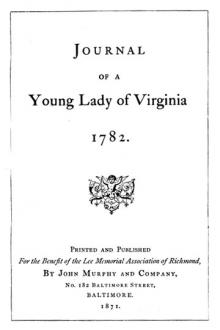The Sketch-Book of Geoffrey Crayon, Gent., Washington Irving [best manga ereader .txt] 📗

- Author: Washington Irving
Book online «The Sketch-Book of Geoffrey Crayon, Gent., Washington Irving [best manga ereader .txt] 📗». Author Washington Irving
This treatment of his subjects and ignominious punishment of his friend outraged the pride and exasperated the passions of Philip. The bolt which had fallen thus at his very feet awakened him to the gathering storm, and he determined to trust himself no longer in the power of the white men. The fate of his insulted and brokenhearted brother still rankled in his mind; and he had a further warning in the tragical story of Miantonimo, a great Sachem of the Narragansetts, who, after manfully facing his accusers before a tribunal of the colonists, exculpating himself from a charge of conspiracy and receiving assurances of amity, had been perfidiously despatched at their instigation. Philip therefore gathered his fighting-men about him, persuaded all strangers that he could to join his cause, sent the women and children to the Narragansetts for safety, and wherever he appeared was continually surrounded by armed warriors.
When the two parties were thus in a state of distrust and irritation, the least spark was sufficient to set them in a flame. The Indians, having weapons in their hands, grew mischievous and committed various petty depredations. In one of their maraudings a warrior was fired on and killed by a settler. This was the signal for open hostilities; the Indians pressed to revenge the death of their comrade, and the alarm of war resounded through the Plymouth colony.
In the early chronicles of these dark and melancholy times we meet with many indications of the diseased state of the public mind. The gloom of religious abstraction and the wildness of their situation among trackless forests and savage tribes had disposed the colonists to superstitious fancies, and had filled their imaginations with the frightful chimeras of witchcraft and spectrology. They were much given also to a belief in omens. The troubles with Philip and his Indians were preceded, we are told, by a variety of those awful warnings which forerun great and public calamities. The perfect form of an Indian bow appeared in the air at New Plymouth, which was looked upon by the inhabitants as a “prodigious apparition.” At Hadley, Northampton, and other towns in their neighborhood “was heard the report of a great piece of ordnance, with a shaking of the earth and a considerable echo.”55 Others were alarmed on a still sunshiny morning by the discharge of guns and muskets; bullets seemed to whistle past them, and the noise of drums resounded in the air, seeming to pass away to the westward; others fancied that they heard the galloping of horses over their heads; and certain monstrous births which took place about the time filled the superstitious in some towns with doleful forebodings. Many of these portentous sights and sounds may be ascribed to natural phenomena—to the northern lights which occur vividly in those latitudes, the meteors which explode in the air, the casual rushing of a blast through the top branches of the forest, the crash of fallen trees or disrupted rocks, and to those other uncouth sounds and echoes which will sometimes strike the ear so strangely amidst the profound stillness of woodland solitudes. These may have startled some melancholy imaginations, may have been exaggerated by the love for the marvellous, and listened to with that avidity with which we devour whatever is fearful and mysterious. The universal currency of these superstitious fancies and the grave record made of them by one of the learned men of the day are strongly characteristic of the times.
The nature of the contest that ensued was such as too often distinguishes the warfare between civilized men and savages. On the part of the whites it was conducted with superior skill and success, but with a wastefulness of the blood and a disregard of the natural rights of their antagonists: on the part of the Indians it was waged with the desperation of men fearless of death, and who had nothing to expect from peace but humiliation, dependence, and decay.
The events of the war are transmitted to us by a worthy clergyman of the time, who dwells with horror and indignation on every hostile act of the Indians, however justifiable, whilst he mentions with applause the most sanguinary atrocities of the whites. Philip is reviled as a murderer and a traitor, without considering that he was a true-born prince gallantly fighting at the head of his subjects to avenge the wrongs of his family, to retrieve the tottering power of his line, and to deliver his native land from the oppression of usurping strangers.
The project of a wide and simultaneous revolt, if such had really been formed, was worthy of a capacious mind, and had it not been prematurely discovered might have been overwhelming in its consequences. The war that actually broke out was but a war of detail, a mere succession of casual exploits and unconnected enterprises. Still, it sets forth the military genius and daring prowess of Philip, and wherever, in the prejudiced and passionate narrations that have been given of it, we can arrive at simple facts, we find him displaying a vigorous mind, a fertility of expedients, a contempt of suffering and hardship, and an unconquerable resolution that command our sympathy and applause.
Driven from his paternal domains at Mount Hope, he threw himself into the depths of those vast and trackless forests that skirted the settlements and were almost impervious to anything but a wild beast or an Indian. Here he gathered together his forces, like the storm accumulating its stores of mischief in the bosom of the thundercloud, and would suddenly emerge at a time





Comments (0)